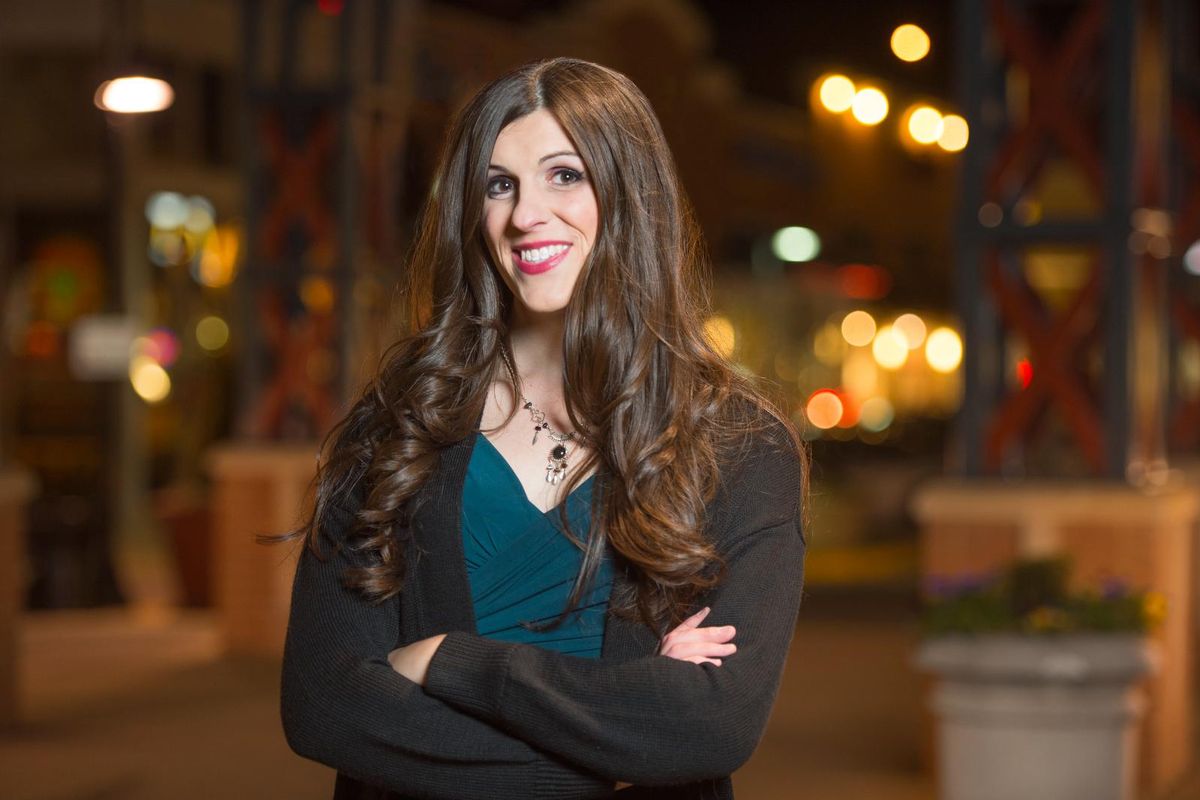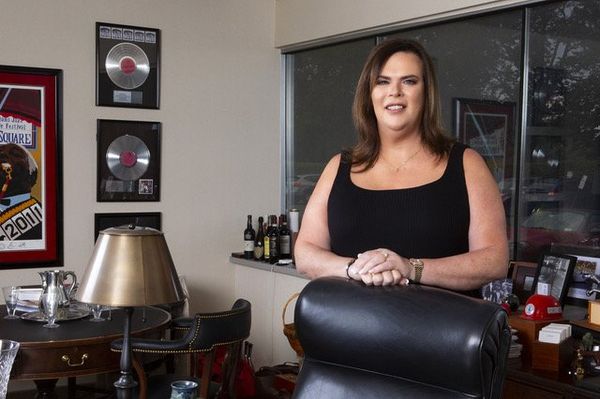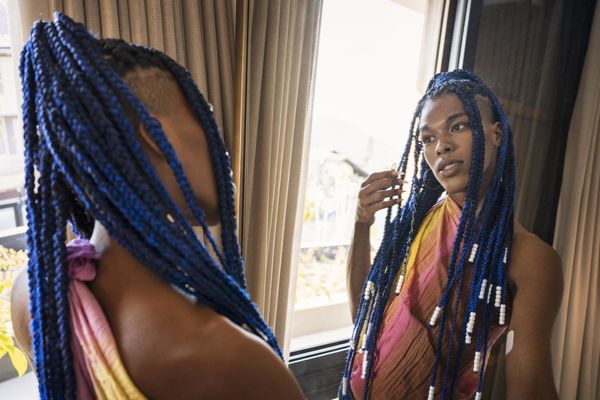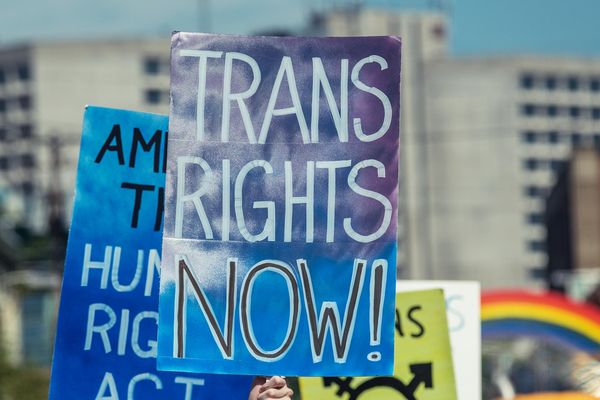Danica Roem made history in 2017 when she became the first transgender lawmaker in Virginia. A champion of LGBTQ rights, she recently introduced a bill in Virginia that bans the "gay and trans panic" defense that has historically been used in cases of murder and manslaughter against gay and trans people. It was signed into law by Gov. Ralph Northam, making Virginia just the 12th state in the United States to ban this defense, which allows people to use their fear of homosexuals and transgender people to justify violence against them.
Delegate Roem recently spoke with HealthyWomen's editor-in-chief, Jaimie Seaton, to discuss the importance of trans rights and what these legislative changes can mean for the LGBTQ community.
This interview has been edited for length and clarity.
HealthyWomen: I'm stunned that legislation banning the gay and trans panic defense is necessary in 2021. Can you tell me the impetus for the law you introduced in Virginia?
Del. Roem: The reason I introduced the bill in the first place was because a 15-year-old out constituent of mine from Manassas Park High School sent me an email last summer, asking if I would introduce the bill. That constituent was worried about what it meant for him living as an out person in society at a time when someone can quite literally get away with murdering or assaulting someone for simply existing as an LGBTQ person. And I recognized the fear in that email that I had when I was a 14-year-old closet case in October of 1998, during my freshman year of high school when Matthew Shepard was killed. And this was the defense that was raised following his murder. And then four years after that, when I was a freshman in college, in October of 2002, Gwen Araujo was killed for being a trans woman. And her assailant, her murderer, used the same defense in that slaying.
I believe that my constituents today, my teenage out constituents, shouldn't be living with the same fear in 2021 that I did in 1998. This defense absolutely happens. In fact, we showed nine different cases in committee, and that was just what one researcher could prepare for us before we got into committee. So this is no way whatsoever an exhaustive or exclusive list.
One of the things I would mention here is that trans women in particular face disproportionate violence compared to other communities.
Part of being a healthy woman, it's not just, "Did you eat kale and apples today?" It's "Do you have a way out of poverty? Are you able to receive an education? Do you have to rely on survival work in order to get through day to day to day? Do you face systemic racism every day? Is the sexism that women already face compounded with discrimination on sexual orientation and gender identity to go along with that?"
HealthyWomen: And what does the law mean to you personally?
Del. Roem: On a very personal level, the fact that Matthew Shepard's mother, Judy Shepard, testified for this bill in the House and Senate speaks volumes to the importance of the bill.
[The gay/trans panic defense] is not a defense that's invoked when there's a physical altercation or if a queer person is attacking someone else. That's just self-defense. This is talking about a situation like one that occurred when I was 29. I was with two of my girlfriends; we were just out dancing. And this one guy comes up and I end up making out with him. And his friend starts getting red-faced pissed and is just like, "We have to go." I can tell at this point, this is not about the fact that his friend found some cute woman on the dance floor. And my friends come up and they take me by the elbows, dragging me out of there and were like, "We have to go now, bye, thanks."
His temper was about to erupt because he had figured out that I was a trans woman.
If a guy likes you, you shouldn't have to fear violence if it's completely consensual. Women as a whole basically expect this violence and are subject to male predators; this happens all the time. If you're trans and your anatomy still aligns with the sex you were assigned at birth, then discovery of that can lead to your murder instantly.
Someone can snap at you and that's what the LGBTQ panic defense is based on in part.
HealthyWomen: You've done such a great job painting a picture of some of the dangers that people in the LGBTQ community live with, especially trans women. From a mental health perspective, what do you think this legislation means for that community and for trans women?
Del. Roem: There are two real-world effects with this legislation. One is a policy directive that will affect operations in a courthouse, and the other is symbolic in terms of what it actually means. I do not want anyone to think this is solely a symbolic bill. It's not. This will basically say that if a defendant's attorney or defendants themselves were to mention or to raise the gay/trans panic defense in a courtroom, the judge, instead of cutting off the person, would simply give instruction to the jury that that it is not to affect the jury's decision in terms of guilt and sentencing.
Also, Virginia now allows for judge sentencing as opposed to just jury sentencing. We were one of only two states in the country that required jury sentencing. So this will have a very real effect in the courtroom, and hopefully it will be a deterrent to people killing LGBTQ people in the first place.HealthyWomen: Please tell me more about the mental health and the symbolic aspect of the legislation.
Del. Roem: What this does, along with the other nearly two dozen pro-LGBTQ equality bills that we've passed since 2020, is tell LBGTQ Virginians and people across the country, "You are welcomed, celebrated, respected and protected here in Virginia because of who you are, not for what other people want you to be." It says that we are working to make Virginia a more inclusive commonwealth, and that if you yourself are a queer person or trans person or your kids are or you know someone who is, that it's OK to stay here in Virginia because even if different parts of the commonwealth might be not as welcoming in terms of how other people interact with you, the policy of the state government is to protect you and to protect your civil rights.
HealthyWomen: What can people do to make their LGBTQ neighbors feel safer in their communities and be good advocates and allies?
Del. Roem: The first thing is just to get to know them. If you're in social situations, it's normal and natural to go up and talk to another human being just like you would do with anyone else. So just say, "Hey, how are you doing?" and get to know who they are as people.
The second thing is that when you see anti-LGBTQ policies popping up at your local level, at municipal level, at the state level, or even federal level, you have to fight against them and say this is wrong, because having straight allies really makes a difference.
We have to have straight allies who recognize that our rights do not threaten their rights, and, in fact, LGBTQ people being treated as equal strengthens the community and thus strengthens the ability for straight people and cis people to also live in a fair and free society where their liberty is respected.
And one of the reasons I mention reproductive freedom as opposed to talking about specific issues is that my ability to transition as a trans woman is dependent on reproductive freedom. The ability for me to take spironolactone, for example, without the government interfering, and for me to make those decisions about my anatomy is based on bodily autonomy and the government staying the hell out of that decision.
And for cis women, reproductive freedom means not having the government interfering with your decisions that you make with your body. I want cis women to also understand that link — that when you are fighting for your rights, standing up for reproductive freedom for yourself is to stand up for reproductive freedom for everyone because we need it.
HealthyWomen: That's a great point. Do you think the health — mental and physical — of the LGBTQ community gets enough attention nationally and from the healthcare community specifically? From medical providers?
Del. Roem: Last year I introduced HB 1429 that prohibits discrimination against trans people in health insurance and health care. So it recognizes trans health care as medically necessary. Now, that bill is only able to affect about 24% of health plans throughout the state because those are health plans that are actually regulated by the state government.
I can't do something with that for Medicare, for example, or for self-insured plans. I can only regulate state-regulated health care. So, for example, if you work for the DMV [Department of Motor Vehicles], if you work for Virginia Commonwealth University, if you're just a state employee like I am, my health insurer absolutely cannot discriminate against my transition-related medical care. And in fact, it took until after I won my primary in 2017 for the Virginia State Health Plan the next month to actually state that it was in fact inclusive of transition-related needs, years after the ACA [Affordable Care Act] had already been interpreted through the Department of Health and Human Services to be trans-inclusive.
So, I shouldn't have to run for office, and trans people shouldn't have to run for office, in order to have our medical care actually validated and taken care of.
I will tell you the absolute barbarism that we've seen in Arkansas for the bill that they passed to restrict trans kids from getting the health care they need — make no mistake about that — it is likely that trans kids are going to die in Arkansas because of that bill, if it is to be enacted and fully enforced, because they will not see the hope that they need in order to have their most severe cases of dysphoria actually be treated.
So what we need is, at the national level, for Roe versus Wade to be affirmed, to have that 14th Amendment right to privacy validated for trans people because it links back to exactly what I was talking about before — reproductive freedom and your healthcare needs and what you do with your body. Even when you're a minor, how your health care is treated, that must be recognized as a constitutional right under the 14th Amendment, which is the basis for Roe versus Wade in the first place.
So we have to have the federal government affirm that trans health care is health care, and that it is not to be discriminated against.
HealthyWomen: That's on the legislative side. What can the medical community itself do? What should they be doing that they're not doing?
Del. Roem: The medical community as a whole, when you take away the fringe groups, is actually getting to a place of being quite supportive in terms of the American Psychological Association, the American Medical Association. The problem within the medical community is that you have a severe lack of access to transition-related health care, especially in rural communities, but even in a lot of urban and suburban areas. You don't have it, and that means we have to have more of an emphasis on telehealth and your ability to talk to a psychologist or another mental health professional for all of the healthcare needs that come with [gender dysphoria]. And oh, by the way, by coincidence, I talked to my therapist at 11 o'clock this morning. [chuckle]
I've been seeing my therapist since November 21, 2012, and that's one of the things that I talk about publicly. Yes, I still see my psychologist because, for me, it's about maintenance. I don't have the same problems I did in 2012 in terms of trying to come to grips with my identity and feeling like I was suffocating. Now it's just kicking the tires, making sure everything is working all right.
In the same way that any person just has routine check-ins with their doctor for whatever reasons, we should be treating mental health in the same way. And in the trans community, we need to have many, many more options and many more people available who actually specialize in transition-related healthcare needs and are able to work with trans people on their mental health.
HealthyWomen: What would you say to a transgender woman reading this story who maybe isn't getting the kind of support she needs or doesn't have access to the health care that she needs in her community?
Del. Roem: We have to be our best advocate, because if we don't, who will? That is not for me to lay an additional burden on someone whose life is already inherently more complicated than other women in general. At the same time, there are not only resources available, but there are things that people can do as individuals to advocate for themselves, to advocate for their community, so that you actually have that support in the first place. And at the same time, I would also tell her that she has to know that regardless of whether she cares about politics, politics cares about her.
And that engagement with the political system, when you are LGBTQ in general, is not optional, it is vital. Our rights are on the line. Our health care is on the line. Our ability to be treated as equals in society and our basic liberation is on the line. You have to care, because if you don't, then in the void that is created, someone else will — and that person may not have your best interests at heart, and they certainly won't have your lived experience at heart.
So that's what I would tell her: to be her best advocate because she needs to be.
Resources:
National Center for Transgender Equality
The Human Rights Campaign
The Trevor Project
- The Other Side of the Rainbow - HealthyWomen ›
- What’s Sexual Orientation Got to Do With It? LGTBQ People Face Discrimination in Healthcare - HealthyWomen ›







